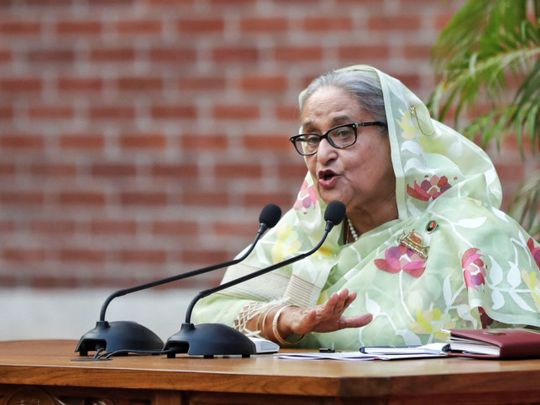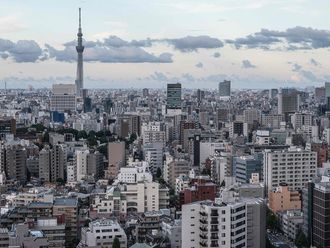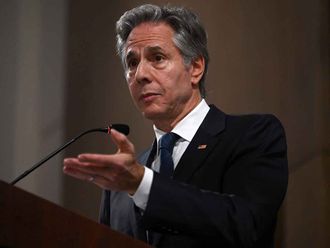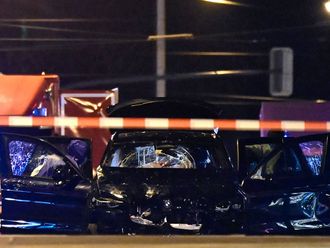
DHAKA:Fresh from her victory in a national election, Bangladesh Prime Minister Sheikh Hasina said on Monday the economic progress of her country was her main aim in the next five years.
The main opposition Bangladesh Nationalist Party (BNP), which participated in the 2018 vote but kept away in 2014, boycotted the polls after Hasina refused its demands to resign and allow a neutral authority to run the general election.
“Each political party has right to take a decision. The absence of one party in election does not mean democracy is absent,” Hasina, who swept to a fifth term in power, told reporters.
Hooker party taking three-quarters of seats in parliament, election officials said on Monday.
Hasina has presided over breakneck economic growth in a country once beset by grinding poverty.
“The Awami League has won the election,” Moniruzzaman Talukder, joint secretary of the Election Commission, said a day after a vote that initial reports suggested drew a meagre turnout of around 40 per cent.
Talukder said Hasina’s party had won 223 seats. But the support of other lawmakers, including from allied parties, means her actual control over the 300-seat parliament is even higher, analysts said.
‘No credible’ opposition
The Jatiya Party, which won 11 seats, is a long-time ally of Hasina’s Awami League, as are many of the 61 independent candidates, said Mubashar Hasan, a political scientist at the University of Oslo.
“Almost all the independent candidates who won the parliamentary seats are also part of the Awami League.”
Among the victors was Bangladesh cricket team captain Shakib Al Hasan, who won a seat for the ruling party.
Opposition activists staged a protest on Monday in Dhaka, wearing black gags over their mouths to condemn the election.
Hasina’s party faced almost no effective rivals in the seats it contested, but it avoided fielding candidates in a few constituencies.
The opposition Bangladesh Nationalist Party (BNP) called a general strike and, along with dozens of others, refused to participate in what they dubbed a “sham election”.
Hasina, 76, called for citizens to show faith in the democratic process and branded the BNP “a terrorist organisation” after she voted on Sunday.
‘Absolute victory’
Envoys from China, Russia and neighbouring India were among the first to congratulate Hasina, visiting her at home on Monday and praising her “absolute victory”, her office said in a statement.
Beijing’s ambassador Yao Wen praised a “long-established friendship” with Dhaka in a statement, underlining the deepening ties during Hasina’s 15-year-long rule.
Politics in the country of 170 million people has long been dominated by the rivalry between Hasina, the daughter of the country’s founding leader, and two-time premier Khaleda Zia, wife of a former military ruler.
Hasina has been the decisive victor since returning to power in a 2009 landslide, with two subsequent polls.
Zia, 78, was convicted of graft in 2018 and is now in ailing health at a hospital in Dhaka. BNP head Rahman is her son.












